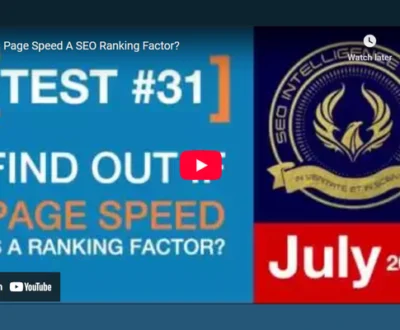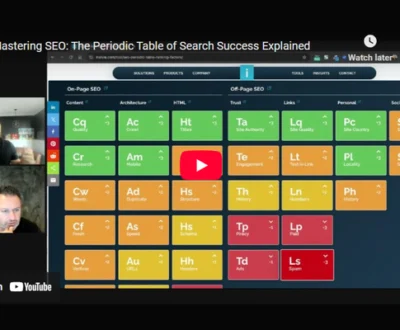To rank higher on Google in 2025, I focus on understanding user intent and search context to tailor content effectively. I prioritize long-tail and conversational keywords, which align with how people naturally search. Building topic clusters helps me organize content for better semantic relevance and authority. I also analyze competitor keywords to uncover gaps and opportunities. Using advanced keyword tools keeps my strategy data-driven and adaptive. Keep going, and you’ll discover even more actionable keyword techniques.
Key Takeaways
- Prioritize understanding user intent and search context to create content that aligns with what users truly seek in 2025.
- Focus on long-tail and conversational keywords to capture specific, natural language queries, enhancing voice search relevance.
- Build topic clusters with pillar and related subtopic pages to improve semantic relevance and site authority.
- Conduct competitor keyword analysis to identify gaps, opportunities, and optimize for keywords with balanced volume and difficulty.
- Utilize advanced keyword research tools to analyze SERPs, track rankings, and target featured snippets and People Also Ask boxes.
Understanding User Intent and Search Context
Although keyword research often focuses on finding popular search terms, understanding user intent and search context is equally vital for creating effective content. User intent is the main reason behind a query, revealing what the user hopes to achieve. Analyzing search intent helps businesses tailor content to user needs, improving relevance.
Search context includes contextual factors like location, device, and search history, which influence how search engines interpret that intent. Modern ranking algorithms, such as Google’s BERT and MUM, use query analysis to grasp both intent and context, aiming to deliver the most relevant results.
Ignoring these elements can lead to content that attracts traffic but fails to satisfy users, harming your rankings. For content optimization, it’s essential to align your material with the dominant intent behind a query and consider surrounding contextual factors.
Leveraging Long-Tail and Conversational Keywords
When you focus on long-tail and conversational keywords, you tap into more specific search queries that reveal clearer user intent and often lead to higher engagement. The long tail benefits include lower competition and higher conversion rates, as these keywords target users closer to making decisions. Conversational nuances matter because voice search and natural language processing reward content that mirrors how people speak and ask questions. With the rise of voice search, nearly 80% of queries are expected to be conversational by 2024, making it crucial to optimize for voice search trends.
Here’s a quick comparison:
| Aspect | Long-Tail Keywords | Conversational Keywords |
|---|---|---|
| Length | 3-5+ words | Natural, question-based phrases |
| Search Intent | High, specific | Reflects natural queries |
| Ranking Advantage | Lower competition, higher conversion | Optimized for voice, NLP-friendly |
Building Topic Clusters for Semantic Relevance
After exploring the benefits of long-tail and conversational keywords, it’s important to look at how you can organize your content to maximize its impact.
Building topic clusters is a powerful way to improve semantic relevance and show search engines that your site covers a subject thoroughly. A topic cluster consists of a central pillar page, which provides a broad overview, linked to several cluster pages that analyze specific subtopics.
This content hierarchy helps both users and search engines understand how your pages relate to each other. Internal linking between the pillar and cluster pages strengthens these connections, improving crawlability and authority.
Conducting Competitor Keyword Analysis
To conduct an effective competitor keyword analysis, I first identify which websites consistently rank for the keywords I want to target but where my site currently falls short. This involves manual Google searches and using SEO tools to spot domains that overlap with my keyword goals. I then analyze their content and keyword strategies, focusing on page titles, meta descriptions, and recurring terms. Keyword selection is essential, so I evaluate search volume, difficulty, and intent to prioritize the best opportunities.
| Step | Focus Area |
|---|---|
| Identify Competitors | Top-ranking domains for target keywords |
| Analyze Content | Titles, meta descriptions, headings |
| Extract Keywords | Organic and paid rankings |
| Compare Keywords | Gap analysis for missing terms |
| Prioritize Keywords | Relevance, volume, difficulty |
This competitor analysis helps me uncover keyword gaps and refine my strategy for better rankings and targeted traffic.
Using Advanced Keyword Research Tools Effectively
Although basic keyword suggestions can provide a starting point, using advanced keyword research tools effectively requires a deeper understanding of their extensive features.
I rely on tool integration to combine data from platforms like Semrush, Ahrefs, and Moz, which offer thorough suites including competitive analysis, backlink profiles, and rank tracking. This integration gives me a fuller picture of the keyword landscape.
Keyword prioritization is essential; I balance search volume with keyword difficulty metrics to focus on achievable targets. Advanced tools also help me analyze SERPs to evaluate top-ranking content, identify relevant search intent, and uncover opportunities like Featured Snippets or People Also Ask boxes.
By incorporating metrics such as click data and cost-per-click, I refine my keyword lists to maximize organic traffic potential. Regular rank tracking then informs ongoing adjustments.
Mastering these advanced features guarantees my keyword research is strategic, data-driven, and aligned with the evolving demands of Google’s algorithms in 2025.
Frequently Asked Questions
How Often Should I Update My Keyword Research Strategy?
I update my keyword research strategy every 3-6 months, but I monitor keyword frequency monthly to catch trends. Regular strategy evaluation helps me stay competitive, adapt to changes, and seize new opportunities effectively.
Can Keyword Research Improve My Local SEO Rankings?
Like a treasure map, keyword research reveals the local pack’s hidden gems by decoding keyword intent. I’ve seen it boost local SEO, helping my business appear where nearby customers actively search for exactly what I offer.
What Role Do Keywords Play in Voice Search Optimization?
Keywords play a huge role in voice query optimization because I focus on conversational keywords that match natural speech. This helps my content align with how people actually ask questions, boosting my chances to rank well.
How Do Seasonal Trends Affect Keyword Targeting?
Seasonal keywords can be the secret sauce that skyrockets your traffic! I rely on trend analysis to time content perfectly, ensuring my SEO matches peak interest periods and captures enthusiastic visitors exactly when they’re searching the most.
Should I Focus More on Search Volume or Keyword Difficulty?
I focus on balancing search volume and keyword difficulty, ensuring content relevance aligns with search intent. This approach helps me target achievable keywords that attract the right audience without wasting resources on impossible rankings.
Final Thoughts
By focusing on user intent, leveraging long-tail keywords, and building topic clusters, you can greatly improve your Google rankings in 2025. Don’t overlook competitor analysis or advanced tools—they’re essential for uncovering opportunities others miss. Mastering these strategies isn’t just helpful; it’s like having a secret weapon in the vast battlefield of SEO. Stay precise and consistent, and your efforts will pay off with clearer visibility and better engagement from your audience.
Windee Tan is a seasoned SEO Specialist with over a decade of experience helping businesses grow their organic visibility through data-driven strategies. He specializes in technical SEO, content optimization, and local search, with deep knowledge of tools like GA4, GSC, SEMrush, and Screaming Frog. Windee is passionate about translating complex SEO insights into practical tactics that drive real-world results. When he's not auditing sites or crafting keyword strategies, he’s exploring the latest trends in AI, digital marketing, and productivity.
About this blog
We are a digital marketing company with a focus on helping our customers achieve great results across several key areas.
Request a free quote
We offer professional SEO services that help websites increase their organic search score drastically in order to compete for the highest rankings even when it comes to highly competitive keywords.
Subscribe to our newsletter!
More from our blog
See all postsRecent Posts
- Writing Clear Calls to Action That Boost On-Page SEO 21 August 2025
- Why Word Count Still Matters in On-Page SEO Today 20 August 2025
- Why Site Speed Is Critical for On-Page SEO Success 19 August 2025









